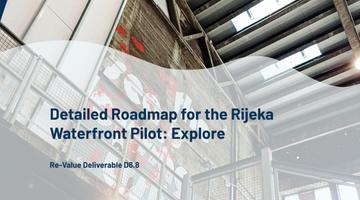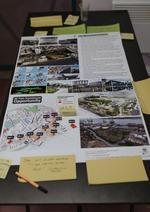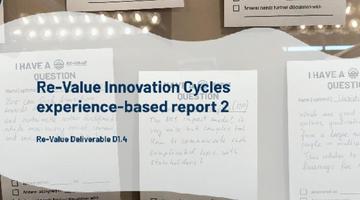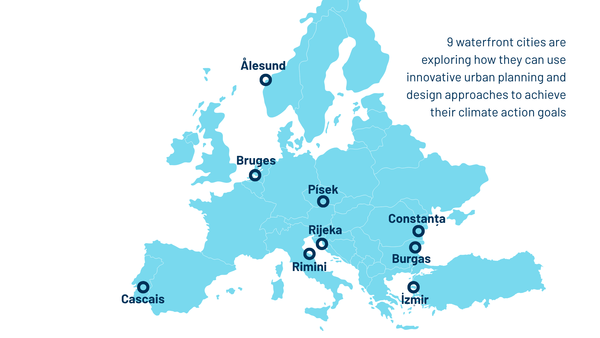Rijeka
Rijeka is a coastal city in Croatia, situated in the large Kvarner Bay in the upper part of the Adriatic Sea.
About
As the country's third-largest city with a population of 108,000 it has a long history as an important seaport.Over the years, Rijeka has been influenced by various cultures, and in just the past century was a main port city for the Austro-Hungarian Empire, Italy and Yugoslavia port, before Croatian independence in 1991.
Today, Visitors to Rijeka can enjoy its maritime atmosphere, impressive architecture, cultural festivals, and museums — most recently highlighted with the City being the European Capital of Culture in 2020 under the motto ‘Port of Diversity'.
Re-Value(ing)
In the Re-Value partnership, Rijeka seeks to benefit from the port’s central location in the city centre, and work with stakeholders in the waterfront area to boost the implementation of its climate neutrality ambitions. This includes expanding the pre-existing use of a digital public consultation platform on planning, and to further attract funding and financing from European actors.
In 2020, Rijeka was looking forward to a year as the European Capital of Culture with a large array of infrastructure prepared. The COVID-19 pandemic put a stop to this but in Re-Value, the city will identify how this infrastructure can be re-used to support in increasing the local quality of life and in achieving climate neutrality.
Furthermore, Rijeka will build on pre-existing work such as the CLIC-project developing methods, grounded in a circular approach, to examine and engage on urban localities, ie, urban gaps (eg. the old industrial complexes which are out of use) and explore their potential.
This will all be done by taking into account all existing limitations that the City is facing in the attempts of putting old spaces to new use. Some of the limitations include: buildings and spaces that are protected as cultural and historical heritage (complicated and expensive renovation), private ownership of spaces, extremely deteriorated spaces.
Key Numbers
108,000
Population
2
Partners aiding the local efforts in Re-Value
Timeline

Detailed Roadmap for the Waterfront Pilot in Rijeka
Discover how Rijeka is transforming its waterfront into a Cultural Corridor. Through the Re-Value project, the city is reconnecting its centre, cultural institutions,...
2.5 Years of Re-Value in 9 Waterfront Cities
This video highlights two inspiring Re-Value activities from each city, showcasing creative transformations. These nine waterfront cities are connecting people,...

Industrial Heritage Case Studies
Over 45 Re-Value project partners - mostly practitioners from Re-Value Cities - met in Rijeka, Croatia, on 29-30 October 2024, for a Re-Value Capacity Development...

Re-Value Innovation Cycles Experience-based Report 2
This report highlights how Re-Value's three Innovation Cycles are helping waterfront cities achieve climate neutrality while fostering inclusivity, beauty, and sustainability....
Partners

The sole responsibility for the content of this website lies with the project and in no way reflects the views of the European Union.



